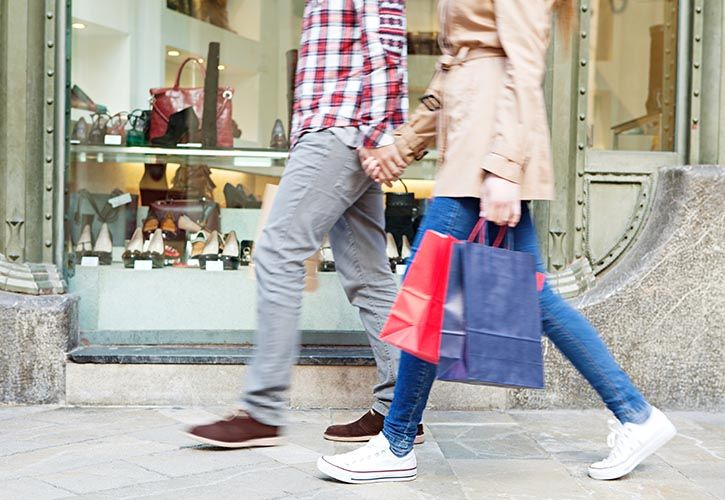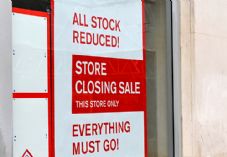UK DIY News
Growth In Consumer Spending Slowed in January

- Spending on essential items grew 10.4 per cent, impacted by lower growth in fuel spending as Brits worked from home
- Despite rising prices, supermarket spending slowed to 13.6 per cent
- Specialist food and drink retailers saw an uplift of 67.3 per cent as Brits shopped locally due to work-from-home guidance and restarted meal box subscriptions
- Inflation is front of mind for the majority of UK adults, as nine in 10 say their household finances and discretionary spending are being impacted
- Expected boosts from Valentine’s Day, return-to-office, and growing international tourism may offset economic headwinds over the coming months
Consumer card spending rose 7.4 per cent in January compared to the same period in 2020 – the smallest uplift since April 2021 – as several sectors were hampered by Plan B restrictions, inflation, and rising energy costs.
While these headwinds are likely to persist over the coming months, their near-term impact may be somewhat mitigated by anticipated uplifts from Valentine’s Day, growing inbound tourism, and Brits spending more on activities and experiences to lift their spirits during the winter months.
Data from Barclaycard, which sees nearly half of the nation’s credit and debit card transactions, reveals that spending on essential items grew 10.4 per cent, the smallest rise in nine months. This can largely be attributed to fuel spend seeing its slowest rate of growth (6.7 per cent) since October 2021, as Plan B Covid restrictions throughout most of January meant Brits travelled less and worked from home instead of commuting.
Despite rising inflation, supermarket spending saw its smallest rise (13.6 per cent) since before the onset of the pandemic. One reason for the slow growth was consumers shifting their spending to food and drink specialist retailers (up 67.3 per cent), such as butchers, bakeries and recipe box services, as Brits chose to shop locally due to the work-from-home guidance and re-started meal kit subscriptions after the Christmas break.
Spending on non-essential items saw noticeably smaller growth in January (6.1 per cent) than in December (11.5 per cent), likely due to the combination of Plan B guidance, and the continued rise in the cost of living. This comes as nearly nine in 10 (89 per cent) Brits say they’re concerned about the impact of rising inflation on their household finances, while three in 10 (30 per cent) say they expect increasing household bills to affect the amount they spend on discretionary purchases.
With more Brits staying at home, face-to-face retail spending (excluding grocery) dropped -8.5 per cent, while spend on clothing (4.9 per cent) and sports and outdoor retailers (14.5 per cent) recorded a lower level of growth than in December (8.8 per cent and 22.0 per cent respectively).
The travel sector was also impacted by Plan B restrictions, with public transport seeing a steeper decline (-44.4 per cent) than last month (-28.1 per cent) as working from home guidance saw Brits delay their return to the office.
Overall hospitality and leisure spending also slipped into decline (-6.3 per cent) after five consecutive months of growth. Within that, the decline in restaurant spending continued to worsen (-17.5 per cent in January, compared to -14.1 per cent in December). Bars, pubs & clubs (14.9 per cent) also saw a smaller month-on-month uplift (up 21.2 per cent).
However, while hospitality and leisure declined overall, spending remained stable among both 16-24 and 25-34-year-olds (up 0.9 per cent and 0.5 per cent respectively), possibly due to younger consumers feeling less concerned about catching Covid-19, and being more comfortable with socialising.
Despite the ongoing economic headwinds, there are some bright spots on the horizon for retail, hospitality and leisure businesses. For example, a quarter of UK adults (25 per cent) say they are spending more on items and experiences to lift their spirits and stay motivated during the winter months, with 39 per cent of these Brits planning to eat and drink out more often. Similarly, 31 per cent feel confident that the vaccine booster rollout will lead them to increase their spending on socialising and shopping in-store.
Valentine’s Day should also give retailers and restaurants a further boost, as almost three in 10 (28 per cent) plan to celebrate the occasion, with this year’s budget set to increase from an average of £63 during lockdown in 2021, to an average of £77 this year. Those celebrating will be looking to spend this increased budget eating out at a restaurant (30 per cent) and buying a gift for their partner, such as chocolates or jewellery (29 per cent).
Meanwhile, the colder weather and Plan B guidance resulted in strong growth in ’insperiences’* (up 50.0 per cent) – this includes categories such as digital content, subscriptions and fast food, as consumers enjoyed nights in with a boxset and a takeaway.
January also saw DIY enthusiasts embark on home improvements as spending gathered momentum (up 22.3 per cent, compared to 21.5 per cent in December). Pharmacy and health & beauty retailers also remained strong (12.8 per cent) as shoppers invested in self-care to beat the January blues.
Jose Carvalho, Head of Consumer Products at Barclaycard, said: “January’s Covid restrictions, combined with the rise in the cost of living, clearly impacted consumer spending levels in January. While restaurants and bars, pubs & clubs were inevitably hampered by the ongoing pandemic, there are signs of brighter times ahead for hospitality as Brits say they’re planning to spend more on eating and drinking out to lift their spirits during the winter months.”
“The lifting of Plan B restrictions should also provide a welcome boost to many sectors, as workers travel back into the office and socialise over post-work drinks, while businesses will likely start to see the benefits of increased inbound tourism on retail sales too.”
Source : Barclaycard
Insight DIY always publishes the latest news stories before anyone else and we find it to be an invaluable source of customer and market information.











































